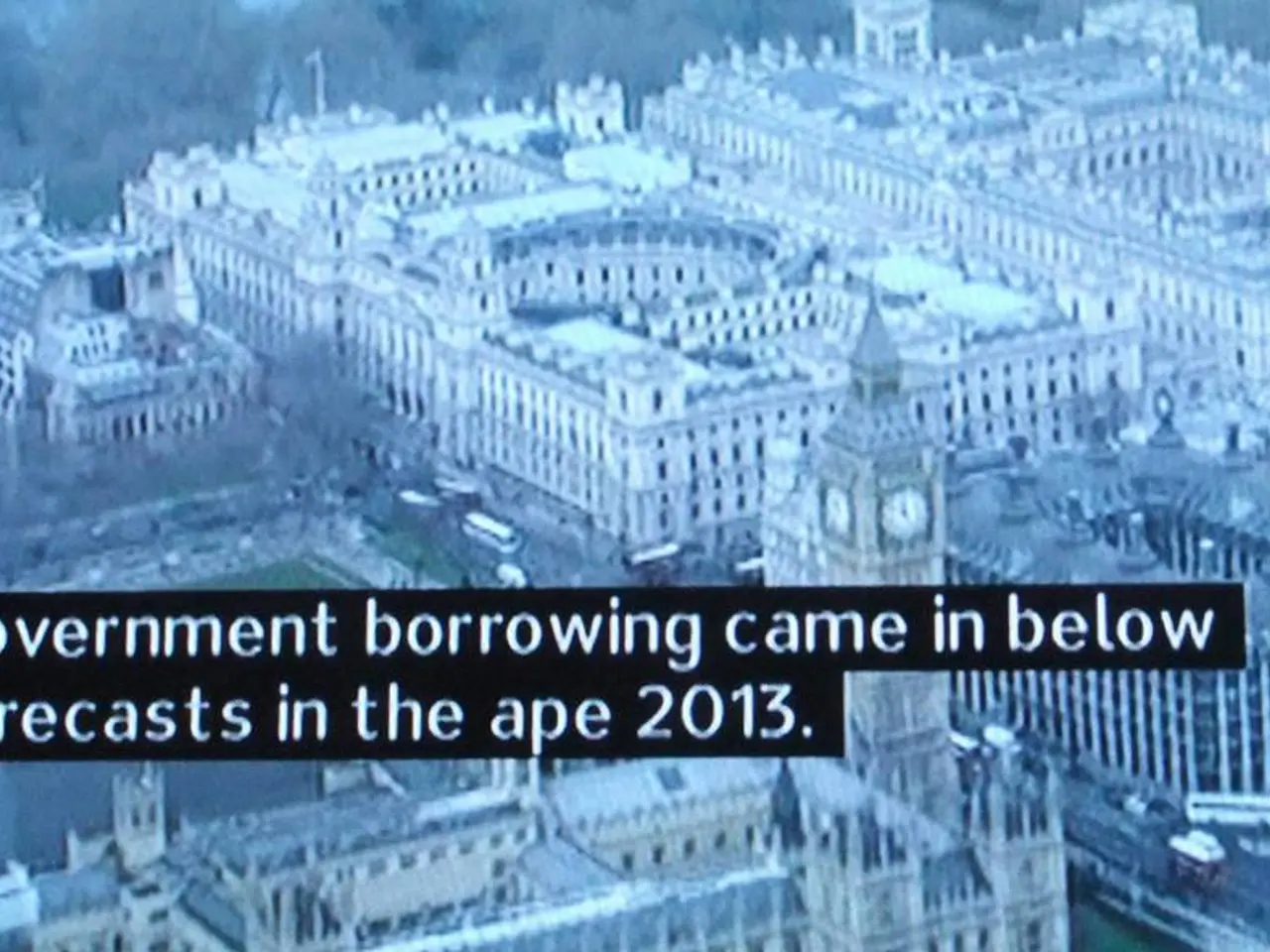Military Budget Approval: Cabinet Grants Financing for High Levels of Debt - Military Financing Amid High National Debt: Government Endorses Monetary Allocation
Unleashing the War chest: Cabinet Backs High-Debt Financing for Amped-up Military Spending and Infrastructure Overhaul
☕
Gearing up for a financial shake-up, Finance Minister Lars Klingbeil presents an audacious budget blueprint to the cabinet, signifying a sharp departure from the FDP-led spending policies of the traffic light coalition. Aiming to surge Germany's economy back on track, fresh loans and special funds are ear-marked for defense build-up, infrastructure modernization, and green initiatives. The SPD chief voiced, "Germany's in dire need of a change, and it's time to put an end to the standstill and ongoing uncertainties."
The cabinet greenlighted not only the draft budget for 2025 but also essential budget projections for 2026, strategic planning up till 2029, and a bill that enacts a debt-financed special fund focused on infrastructure and climate protection. The Bundestag and Bundesrat are now slated to scrutinize and deliberate these plans.
Meet the 2025 Budget
Faced with the coalition's inability to finalize the budget for this year, ministries have zeroed in on vital expenditures since the start of the year. Consequently, the budget decision urges parliamentary discussion on this revised budget plan by mid-September, with the Bundestag engaging initially before the summer recess.
Klingbeil's budget envisages expenses amounting to 503 billion euros. Borrowings to the tune of 81.8 billion euros are projected in the core budget-a substantial jump from the previous year. In addition, more than 60 billion euros are earmarked to come from debt-financed special funds.
Priority Spending Areas
- Reckoning a hefty 75 billion euros for the armed forces, civil defense, intelligence services, and foreign aid for nations like Ukraine, 32 billion of which are debt-financed. The federal budget is poised to surpass NATO's 2% defense spending target, according to the finance ministry[1].
- Allocating near 22 billion euros for rail infrastructure improvement, incorporating digital upgrades and hardware repairs[2].
- Earmarking four billion euros for affordable housing construction and urban development funding.
Laying Groundwork for 2026 and Beyond
Although only a rough plan for 2026 has been presented thus far, the cabinet is anticipated to approve the precise draft budget on July 30. With projected outlays of 519.5 billion euros for 2026, loans of 89.3 billion euros are planned in the core budget, alongside 83.4 billion from debt-financed special funds for the military and infrastructure[2].
Defense spending for 2026 is expected to reach about 97 billion euros, exceeding the NATO target of approximately 2.8%[2]. By 2029, Klingbeil plans to boost defense spending to 3.5% of GDP to safeguard Germany's strength and readiness[3].
Climate-conscious Special Funds for Infrastructure Development
A special fund worth more than 500 billion euros will be established to finance grand-scale investments in bridges, roads, energy networks, and climate-friendly projects[3]. The fund, with a lifespan of 12 years, will expire by the end of 2036, allocating 100 billion for climate protection and another approximately 100 billion for green infrastructure projects spearheaded by state authorities[4].
Critically, this fund will only finance supplemental projects that surpass the regular federal budget, with the Greens critiquing the decision as insufficient investment in the nation's future, modernization, and climate change solutions[5].
Invigorating the Economy
The revitalization of infrastructure is projected to stimulate the sluggish economy. Apart from this, the federal government seeks to offer businesses more favorable tax deductions for investments and subsidize gas prices for consumers beginning January 2026[6].
Germany's Growing Debt Capacity
The federal government plans to incur nearly 850 billion euros in debt by 2029, combining both the core budget's loans and the special funds[6]. Klingbeil defends the debt accumulation, stating that immediate action is essential to stimulate economic growth. "I believe nothing is more costly than the standstill of the past years," Klingbeil quipped, likely referring to his predecessor, ex-FDP leader Christian Lindner[6].
Nevertheless, the borrowing leads to a substantial interest burden, with the finance ministry estimating that interest costs will reach almost 215 billion euros by 2029. Furthermore, the budget still carries billions in unaccounted gaps for expenses in the years following 2027, in addition to the outstanding debts amassed during the pandemic response[6].
Opposition Assails the Proposed Budget
The opposition, comprising the Greens, Left, and BSW, has harshly criticized the budget plans. "Germany's foremost goal is reckless military build-up with Klingbeil's debt plans," proclaimed Left leader Dietmar Bartsch[7]. The opposition emphasizes concerns over overspending on defense amid escalating global tensions and environmental concerns, while the Green Party has accused the coalition of reneging on promises and employing excessive budget trickery[7][8].
[1] DW.com
[2] tagesschau.de
[3] dpa.de
[4] handelsblatt.com
[5] faz.net
[6] spiegel.de
[7] dw.com
[8] bild.de
- EC countries might consider incorporating a focus on vocational training in their policy-and-legislation, as Germany's budget for 2025 emphasizes substantial investments in this area, amounting to over 60 billion euros, encompassing defense, infrastructure, and green initiatives.
- Given the increase in funding for defense and infrastructure in Germany's budget, the finance ministry's actions could spark debates on military spending in politics and general news, potentially leading to discussions among EC countries on their own defense and economic priorities.




